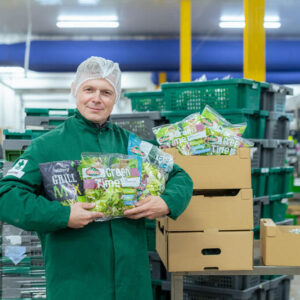Consortium cooks up CO₂-based prototype

A pioneering international consortium backed by the Novo Nordisk Foundation and the Bill & Melinda Gates Foundation is entering a new phase in its mission to transform carbon dioxide into nutrient-rich food.
With up to DKK 162.2 million in fresh funding, the team will begin developing and evaluating real food prototypes — marking a major step toward scaling climate-resilient food systems.
The initiative, launched in 2023, brings together commercial enterprises, research institutions, and culinary innovators to reimagine food production using CO₂-derived acetate. This acetate replaces sugar in fermentation processes, enabling the creation of single-cell and precision proteins without relying on agricultural land or freshwater resources.
“The consortium shows what we can achieve with bio-solutions when researchers and companies join forces,” said Claus Felby, vice president of Agri-Food at the Novo Nordisk Foundation. “Within the next two years, we can expect to see actual food prototypes tested by consumers.”
The project’s core ambition is to decouple food production from traditional farming, addressing both climate change and food insecurity. By feeding fermenting microorganisms directly with acetate — a key metabolic input—the process eliminates the need for sugar, dramatically reducing land and water use.
Phase one of the project yielded promising results:
- Development of microbial strains that thrive on 100% acetate and contain over 40% protein.
- Construction of pilot acetate production facilities at Aarhus University.
- Identification of key cost drivers, including electricity and infrastructure.
Now entering its second phase, the consortium will focus on optimising the technology, modelling its environmental and economic impact, and expanding its partner network. New collaborators bring expertise in food science, consumer behaviour, gastronomy, and socio-economic modelling — ensuring the prototypes are not only viable but palatable and scalable.
Denmark’s experimental food culture is playing a key role in the project’s evolution. The addition of Spora, led by Rasmus Munk — head chef at the two-Michelin-starred restaurant Alchemist — adds a layer of culinary creativity to the consortium’s scientific foundation.
“One of Denmark’s strengths is the ability to build bridges between research, industry and gastronomy,” Felby added. “This makes us an ideal test country for technologies like this, where CO₂ becomes a raw material for the food of the future.”
As the consortium moves forward, its work could redefine how food is produced in regions with limited agricultural capacity. With global attention on sustainable innovation, the project stands as a bold example of how climate solutions and food systems can converge — turning emissions into edible impact.
Consortium partners (2025-2027)
- Topsoe
- Novonesis
- Orkla Denmark
- Spora
- Novo Nordisk Foundation CO₂ Research Center (CORC)
- Department of Biological and Chemical Engineering, Aarhus University
- Department of Food Science, University of Copenhagen
- Department of Food and Resource Economics, University of Copenhagen
- Northwestern University
- Copenhagen Process






